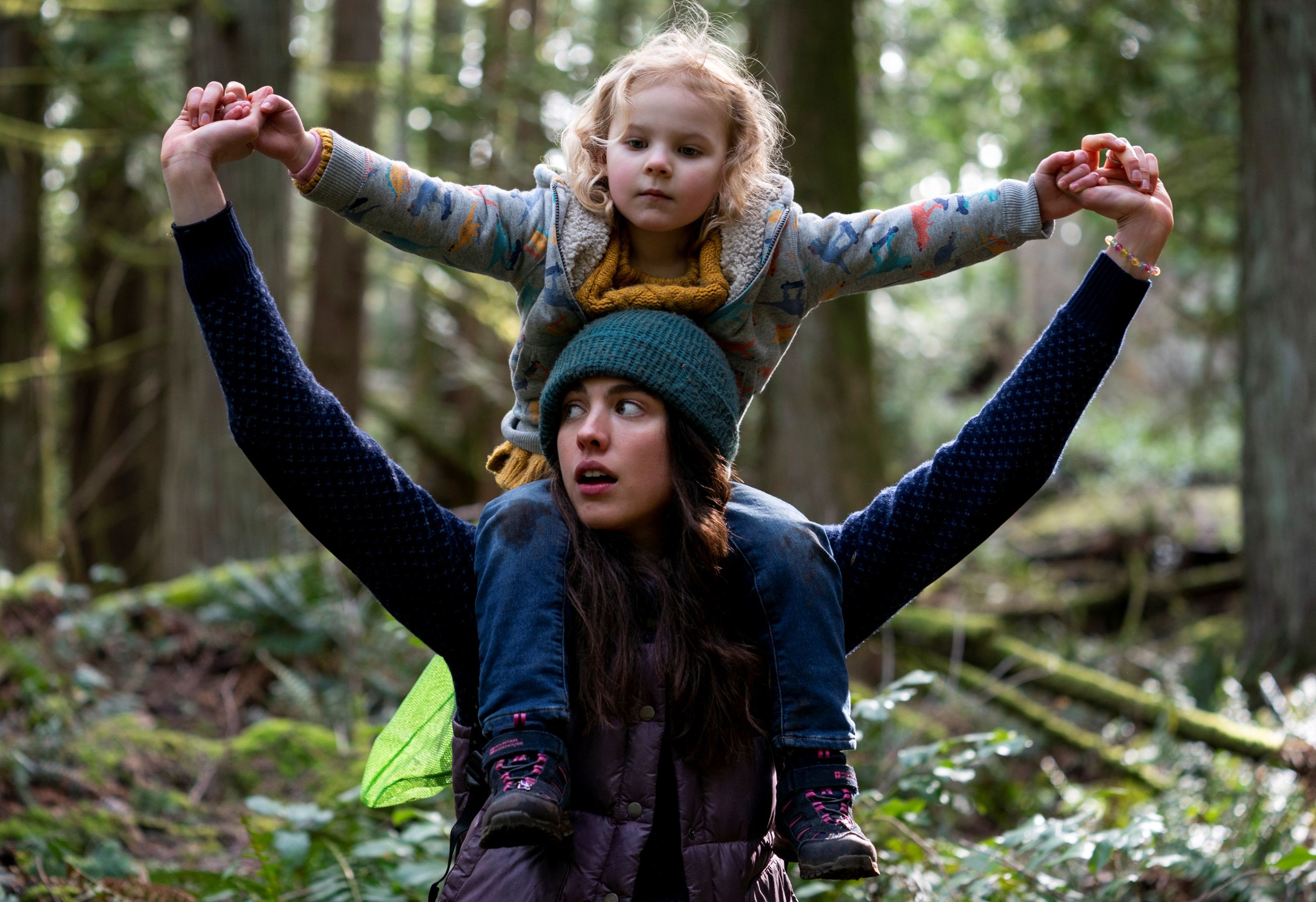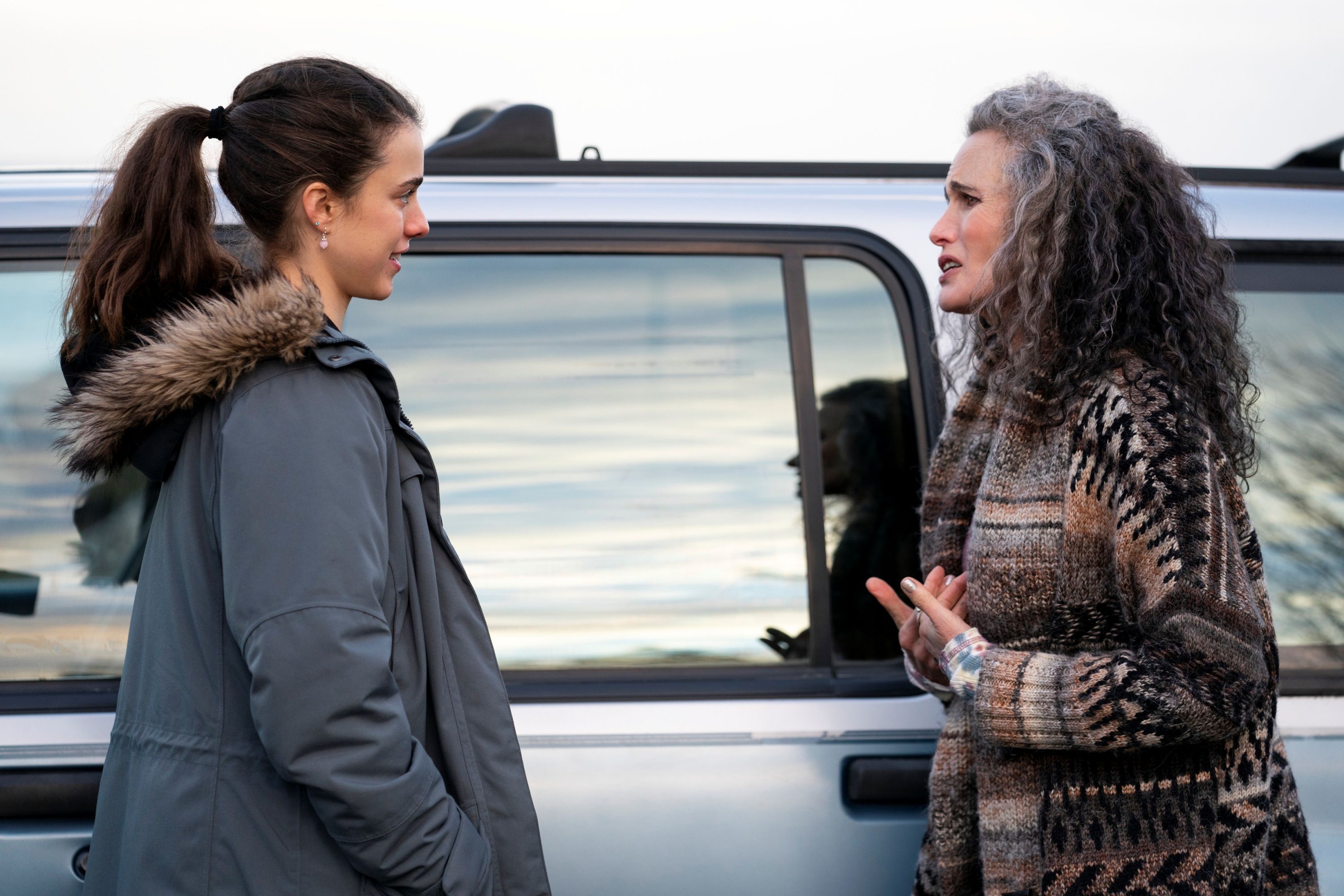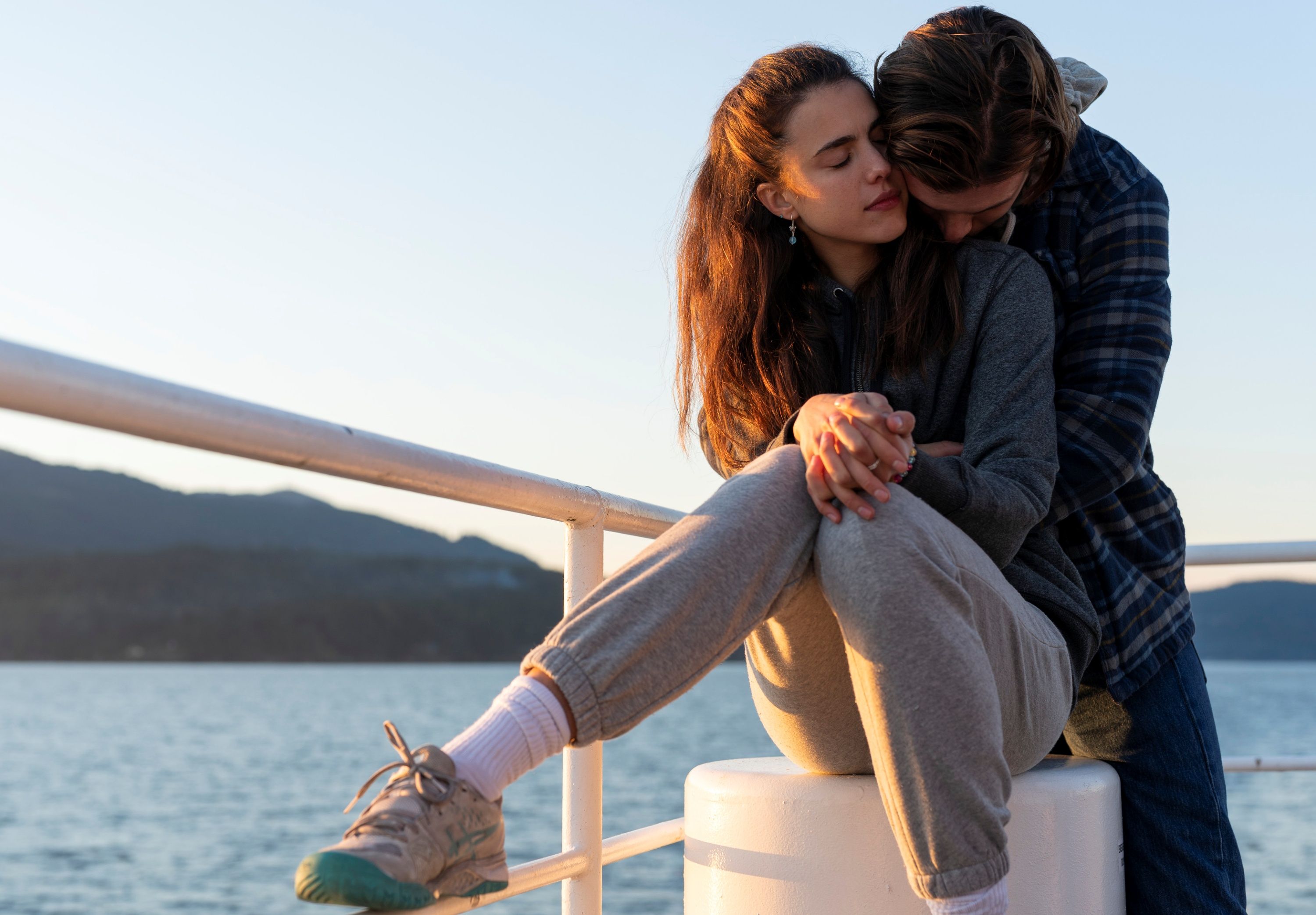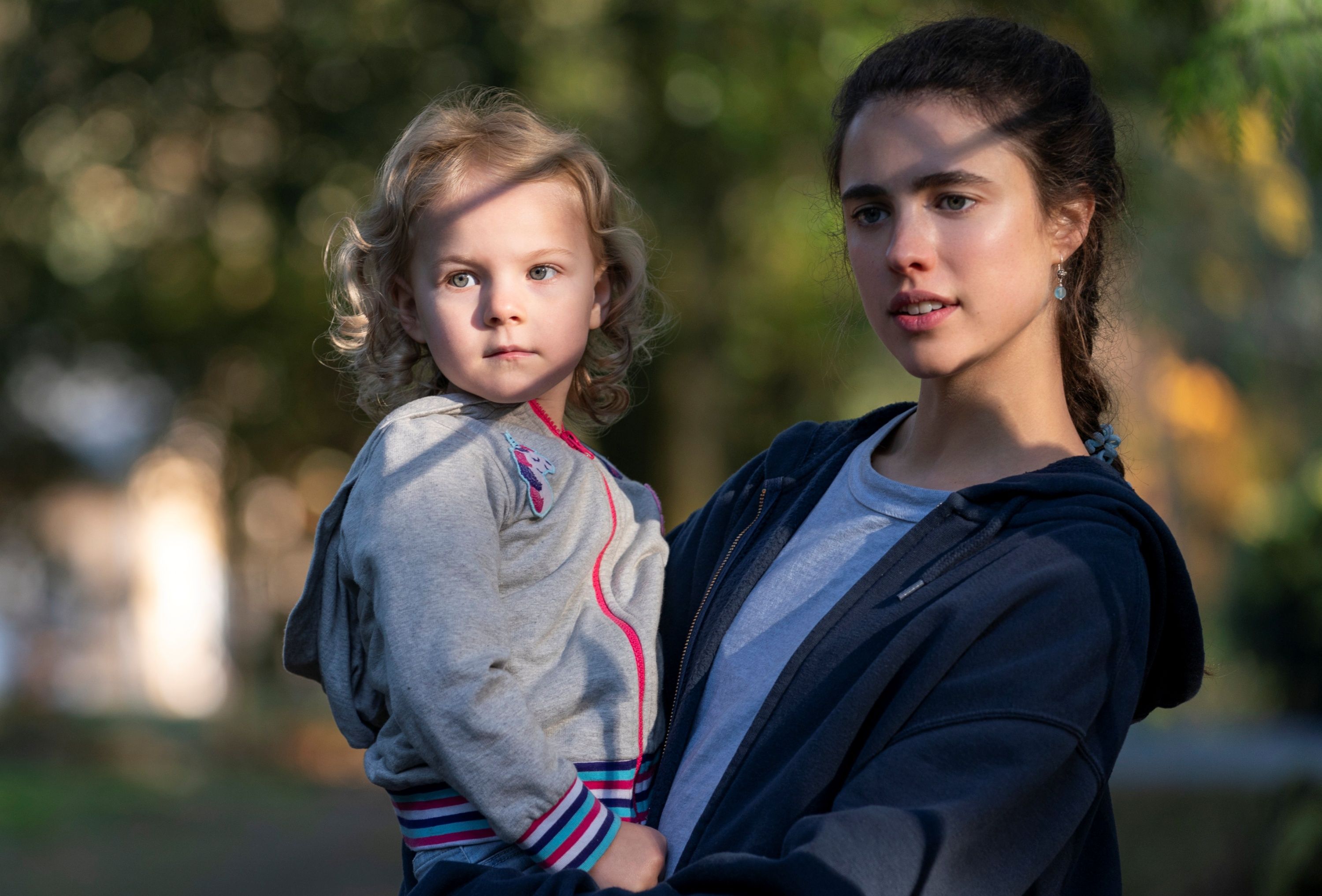Maid Created Molly Smith Metzler on Why She Cast Margaret Qualley and Andie MacDowell
From creator Molly Smith Metzler and inspired by the best-selling memoir Maid: Hard Work, Low Pay, and a Mother’s Will to Survive by Stephanie Land, the Netflix series Maid follows Alex (Margaret Qualley), a single mother who escapes an abusive relationship only to find herself desperate for a better life for her daughter (Rylea Nevaeh Whittet). Taking a job cleaning houses while trying to keep from being homeless and figure out her next step, Alex’s resilience is tested every step of the way while refusing to give up on a better future.
During this 1-on-1 interview with Collider, executive producer/writer Metzler talked about what led to her being the showrunner of Maid, what she learned from working and collaborating with John Wells (who’s an executive producer on the project), what made Qualley her Alex, how Andie MacDowell got involved, figuring out how she wanted to portray emotional abuse, and what she did for her own self-care while telling such an emotionally challenging story.
Collider: Great work on this show. It’s a tough watch, but it also leaves you with just enough hope that it makes all of the heartache you get while watching it worthwhile.
MOLLY SMITH METZLER: Thank you so much. I’m glad to hear that.
I know you’ve previously done work as a writer and producer for TV, prior to creating this. How did this come about? What made you decide this would be the show that you created and ran?
METZLER: Well, the truth is, I’m a playwright, and so all of these years that I was working in television, I was also going home and writing on my own, in my own voice. I guess I approach it in the same way. I was waiting for the thing that grabbed me and that I felt like I absolutely had to write, and the idea of someone else writing it would just be torture, and Maid was that for me. John Wells was my boss at the time, I was in his writers’ room for Shameless, and he came in talking about this book that he and Margot Robbie had just gotten the rights to. It was so kismet and organic. They handed me the book in the writers’ room, and I went home and read it and I said, “This is the thing.” I’d been reading books for years, and not feeling that thing where anyone else doing it would make me sad.

What have you learned from working and collaborating with John Wells, before doing this together, that you felt you could apply to doing Maid?
METZLER: I learned a lot from John Wells, over the years. I always joke that everyone should have to study how to budget for a television show with him. It’s his superpower. He can find dimes in the couch. It’s really extraordinary. But I also had the incredible other experience of having worked with him as a writer, and I think that really prepared me for this job. When you’re in a writers’ room with John, it’s a very small writers’ room, everyone is empowered, but he is the hardest working writer in the room. That really set me up for Maid. It’s a writing job, at the end of the day. It’s also a million other jobs, but primarily it’s a writing job. You have to know what you want. You have to know what the vision is. You have to be able to say yes or no, and really push everyone’s work to be the best it can. I learned that work ethic from him.
Alex’s story is a very emotional journey that eventually ends on a hopeful note, but has a lot of ups and downs, and often more downs than ups, in getting there. Because of that, it seems like who you cast as your lead is absolutely crucial to something like this. What made Margaret Qualley your Alex? What did you see in her that gave you the confidence and trust that she would be the perfect person for this?
METZLER: Well, you’re absolutely right that the casting of Alex is everything in this show. She is in every single frame, for 10 hours of viewing. I knew that going in. I knew, when I started writing the pilot, that we were never gonna leave her point of view. I don’t think roles come much bigger or much harder than this. But when we met Margaret, first of all, I just loved her as a human. She had her laptop propped up on a lamp. It was Zoom, it was the pandemic, and she just seemed like a genuine human, which was really important for this role, and had an incredible lack of vanity and a great sense of humor. But then, when she read Alex, the thing that really struck me was just how raw it was. It felt unaffected, really true, not studied, not someone trying to win an award, just genuine commitment to the material. She is an extremely hardworking artist.

What was it like to then have her and her mom, Andie MacDowell, sharing the screen together and doing this duo of roles together? I can’t imagine anyone else playing her mother.
METZLER: I know, it’s wild. When we cast Margaret, which we did early on – once we met her, that was who we wanted – we started talking about Paula. Of course, everyone internally was like, “Well, we should talk about Andie.” I think there was this sense of, because it’s her mom, we were waiting to see if she would bring it up. We didn’t know what her vibe would be. There’s a lot of women out there who wouldn’t want to spend nine months shooting something with their mother, so we were waiting. And then, it was really delightful because it was Margaret’s idea. She brought it to us and said, “I really want my mom to play this.” I said, “Are you sure? We are going to quarantine and be on an island for nine months? It’s your mom.” And she said, “I really, really don’t wanna do this without her.” It was beautiful. We were all signed on and it was the easiest casting that’s ever happened. I’m just very honored that she made time to come do this with this.
How did you decide where you wanted to end this story? Did you always want to end it on a hopeful note? Did you want to leave a sense of the feeling that life goes on and you don’t necessarily know entirely how things might turn out?
METZLER: Well, the memoir ends in the same way that the series does. Stephanie Land closes out her beautiful book with an anecdote about having arrived in Missoula and climbing up to the top of the mountain and having this moment with her daughter, knowing everything is gonna be okay and her daughter wasn’t gonna be sick. It’s a beautiful ending to her book, and as the writer of the series, I was always writing towards that. I didn’t know necessarily that would be our final image as well, but I was writing towards a sense of everything being okay and of leaving the audience feeling like you don’t have to worry about this woman and this little girl. They’ve been through something, and the only way out is through. So, yeah, I often think about writing as a tunnel and I knew that was the end of the tunnel.

How hard was it to figure out how you wanted to portray the relationship between Alex and Sean? There is a lot that is very subtle and you don’t necessarily show the extent of the abuse going on. What was it like to figure out how much you had to show and what were those conversations like with the actors?
METZLER: Well, I really was careful in how I portrayed Sean on screen. I think this has to do with my incredible passionate about the subject of emotional abuse. It’s very rare to see it accurately portrayed on screen. It also takes time to show because it’s a corrosive sort of abuse. It doesn’t happen overnight. Nobody reaches across the table and punches you. It’s a slow, terrible grind of abuse. I knew that we were going to spend a whole journey seeing that. So, when it came to Sean, I thought about how bad guys don’t have twisting mustaches. They don’t look like villains. They look like Nick Robinson. I really wanted to create a fully dimensional person. He’s a victim of his own experience. When we cast Nick, I talked to him a lot about how to do that. He’s such a giving actor. His default setting is generosity, which I think is a really beautiful quality for Sean. I was writing it for him. I knew he would bring that to every line.
When you do something like this, where the story is such an emotional rollercoaster, did you need to do anything to decompress when it was all finished? Aside from the actors, you’re also going through this, writing it and being there on set?
METZLER: I love that question. Thank you. Thank you for asking. Listen, we made a TV show on an island, during a pandemic, in another country. There’s a lot I had to recover from, absolutely. I suspect we all did. It was a once-in-a-lifetime unprecedented moment to be trying to make a piece of artwork with 400 people from California and Canada. My only way of decompressing, and it’s still my only way, is my family. I need to be with my family. That was really one of the silver linings of shooting this at the time that we did. With my daughter and my husband, who was also a writer and producer for the show, we were actually able to relocate to Canada, as a family. I’m really lucky because the cast and the crew were making this incredible sacrifice of time to be away from their families and shoot this, and I had my number one stress relief right at home in our rental house, which is my daughter. I’m very fortunate. That part of the pandemic was very fortunate.

This is definitely one of those projects that seems like it would also put you through a lot as well.
METZLER: Yes, and I don’t mean to suggest that I didn’t go through a real emotional ringer, because I did. I know a lot about this subject. That’s why I was drawn to it. Writers latch onto things that we can put ourselves into, and these are all subjects that I know a lot about. So, certainly, I took a lot of bubble baths.
Maid is available to stream at Netflix.


التعليقات على الموضوع